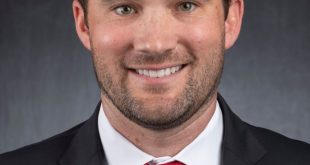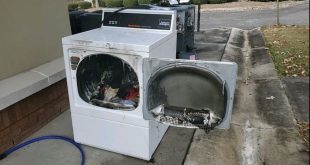Hungry students and a loving heart led Blazer Gardens President, and senior sociology student, Bobbi Hancock to reach out to the campus community and start Blazer Gardens—a garden in which produce is grown organically, and the leadership teaches students how to grow their own food—an idea conceived in fall of 2010.
“I was working with Volunteer Services at VSU when I became aware of the fact that many students were going to the dining halls asking for food because they were hungry,” Hancock said. “As an avid gardener, I know how simple it is to grow food.”
“My idea was that if I could teach students to grow their own food, it would help eliminate hunger on campus and at the same time educate students willing to participate on how to grow food without the use of harmful pesticides,” Hancock said.
“Blazer Gardens is a great opportunity to learn something new and be able to get down and dirty,” Erin Hurley, Blazer Gardens secretary and senior anthropology student, said. “We all used to play in the mud in the backyard making mud-pies or throwing dirt at our brothers or sisters. Why did we stop? This is one of those opportunities to bring back the dirt and get something out of it besides grass stains!”
With the support of Dr. Matthew Richard, Professor of Anthropology, Hancock met with former VSU President Dr. Schloss.
“After talking to members of the campus community, I approached a professor in the Biology department about taking on the responsibly of being our faculty advisor,” Hancock said. “She accepted and with the permission of Dr. Robert Gannon, secured a spot for us to grow a container garden on the roof of Bailey Science Center.”
Months of planning went into organizing the vegetables to be harvested and the people to help Hancock with her project.
“Several members of the local community made $100 donations and many business donated plants and tools to our cause,” Hancock said.
January of this year, Hancock spoke to biological horticulture students about the project, and her plans seemed to be moving in the right direction.
“Unfortunately, the faculty advisor I chose did not share my vision in promoting Blazer Gardens as an organic garden with Non-GMO (genetically modified organisms) seeds,” Hancock said. “Shortly thereafter, it was agreed that she should step down from her position as faculty advisor.”
When the biology professor stepped down, Blazer Gardens was asked to vacate the Bailey Science Center roof.
“On February 21, 2011, I received an email message from Ray Sable, VSU Director of Physical Plant & Facilities Planning, to limit the foot traffic on the roof of the Bailey Science Center,” Dr. Connie Richards, Dean of the College of Arts and Sciences, said. “My concern from the very beginning was its proposed location on the roof of the Bailey Science Center.”
Richards recalls a time at a previous institute when a student fell to their death from the roof of a building.
By April, however, Hancock’s luck changed: Blazer Gardens was recognized as an official campus organization.
“Eventually, Kathryn Grant, vice president of Blazer Gardens, offered us a plot of land in her back yard to use to grow food,” Hancock said.
The group has been hard at work since mid-April.
“[S]tudents worked to make proper amendments to the soil, tilled and weeded the area and then planted our first plants which included, sunflowers, various types of pepper, tomatoes, squash, cucumbers, chives, rosemary, holy basil and a lemon, pink grapefruit and Satsuma orange tree,” Hancock said.
Organic chemicals and non-GMO seeds were used in the summer harvest. Their goal, according to Hancock: “to provide the students with only the healthiest foods available.”
“Buying locally and organically is not only healthier for you, but also this economy,” Hurley said. “Gardening can be hard work but it is rewarding when the food on your plate is something that you have grown yourself!”
“We even canned pickles with the cucumbers we grew,” Hancock said.
Students from a variety of majors have joined to help the cause of feeding the hungry students of VSU and the community.
“With the summer growing-season coming to an end, food production has slowed and we are preparing for the next phase of our project,” Hancock said.
“We each have a strong desire to make students aware of their food choices,” Hancock said. “Many students are not aware of the fact that big corporations (agribusiness) are degrading our agricultural landscape by producing genetically modified foods. Not only are many of these GMO’s less healthy, they also pose a dangerous threat to our environment.”
Hancock and her organization want people to understand what they are putting into their bodies and how they can take control of what they consume.
Blazer Gardens is brainstorming more ways to make their goals known and to educate VSU students. Plans for meals with a local chef and garden participants are in motion to teach students the best way to cook the foods they harvest. Lectures have also been considered, in hopes to educate students on the environmental and health consequences brought on by various food productions.
“We are open to suggestions from the student body at large for an organization that would benefit from such a garden,” Hancock said. “If possible, we would also like to attend some type of conference related to protecting the environment, student activism or something related to organics and food production.”
“We hope we can get more students involved and passionate about what we eat and keep this student organization thriving and hopefully eventually have a garden for students on campus,” Hurley said.
 The Spectator The independent student newspaper of Valdosta State University
The Spectator The independent student newspaper of Valdosta State University






I would like to get involved with blazer gardens if it is still an active organization at VSU